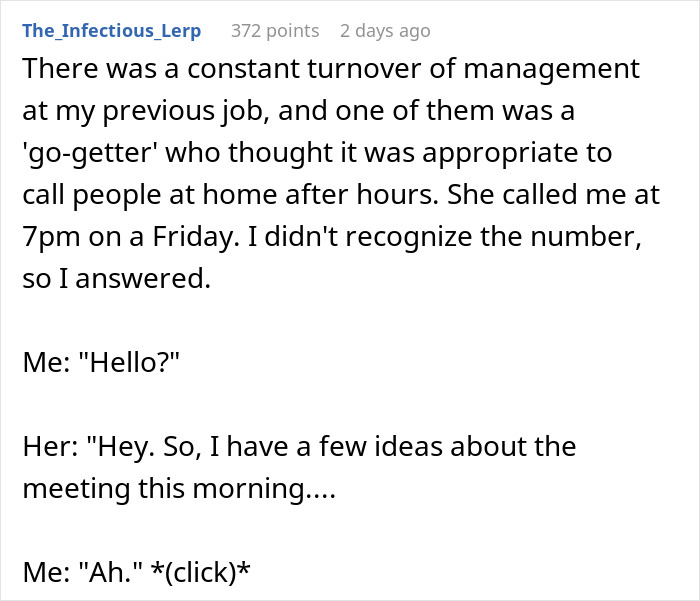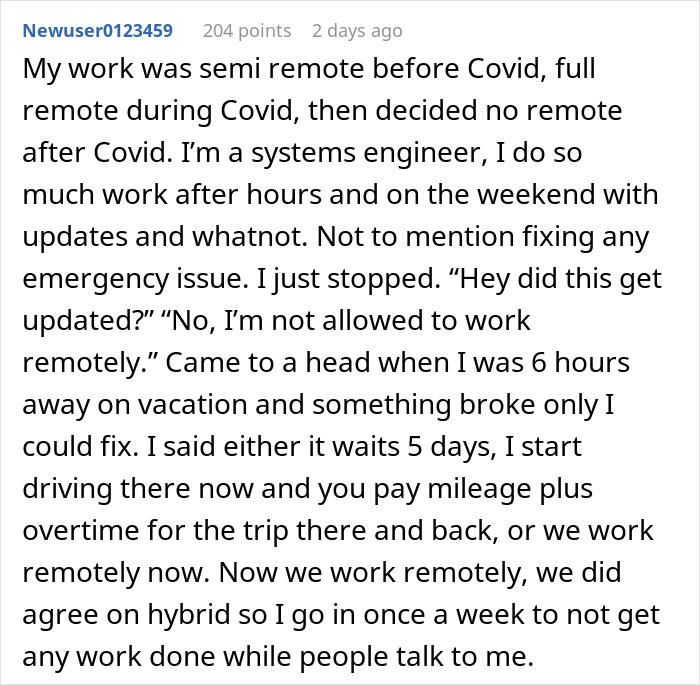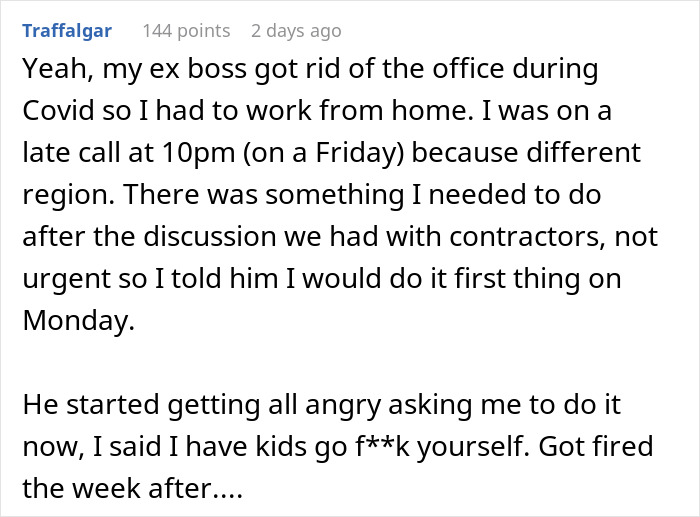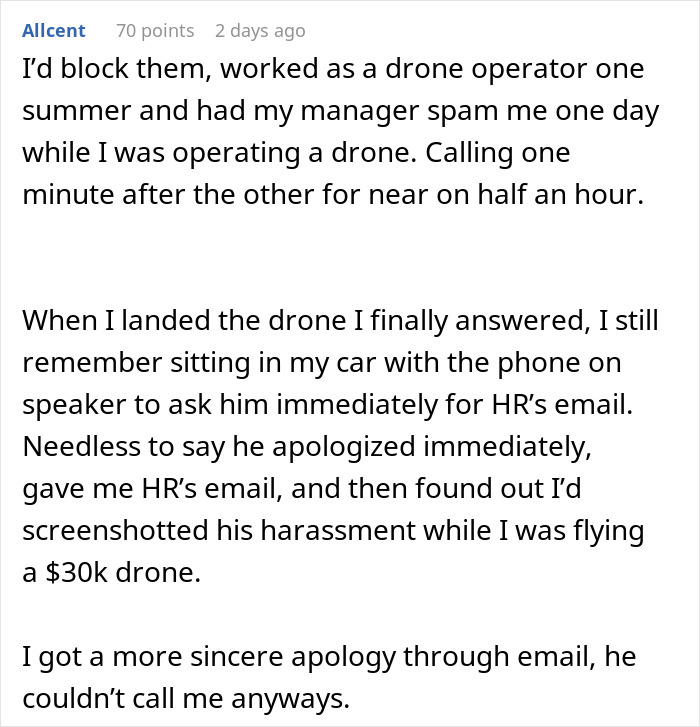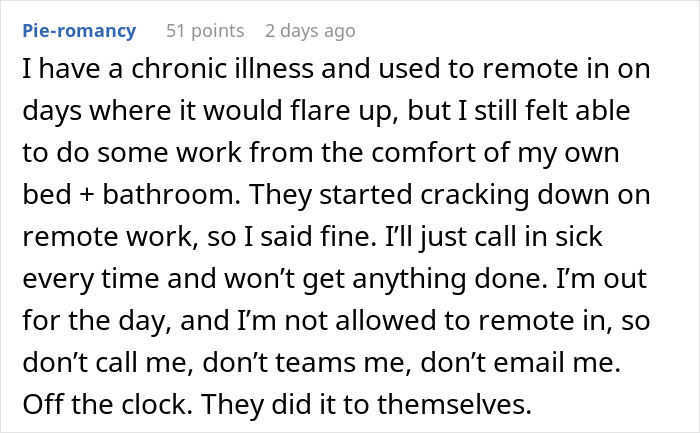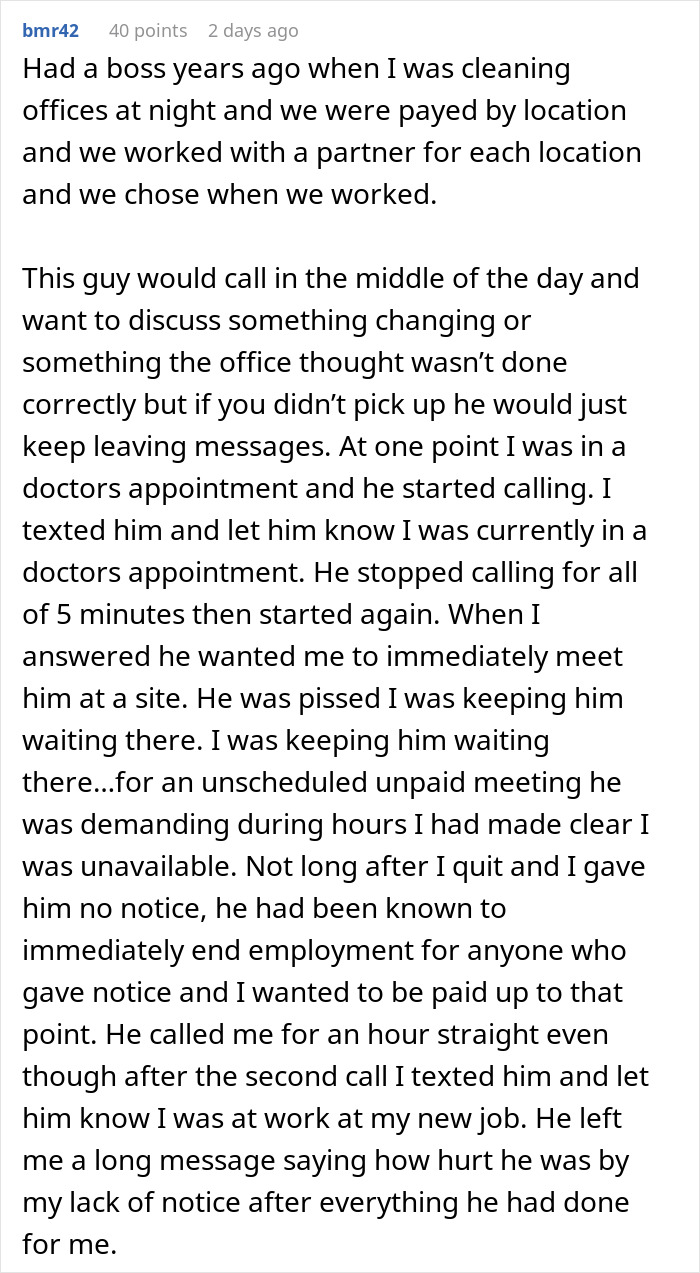No one should understand the rules of the workplace better than your manager. How can they enforce company policy if they don’t even know what that means?
But after one employee was told that remote work is no longer an option, they started to become frustrated with the fcgir manager’s lack of boundaries. Below, you’ll find a post that was recently shared on the Anti-work subreddit, as well as some of the replies invested readers shared.
Managers should be the first people to follow new rules implemented by the company

Image credits: Tima Miroshnichenko (not the actual photo)
But after this employee was told they weren’t allowed to work remotely, their manager had a hard time respecting boundaries
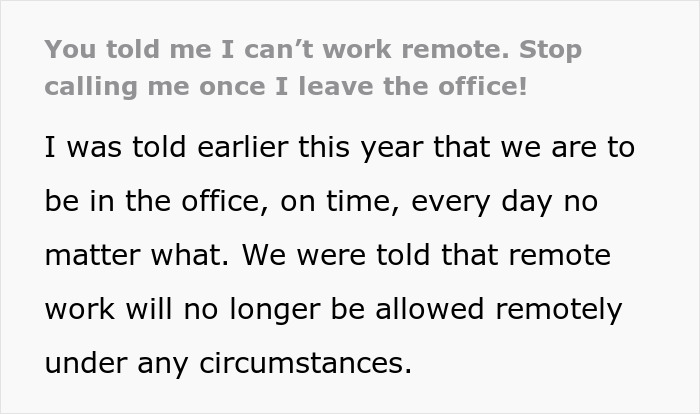
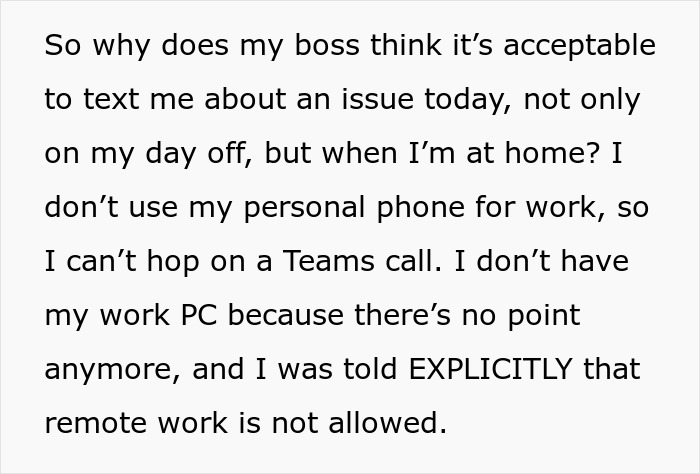

Image credits: Karolina Grabowska (not the actual photo)
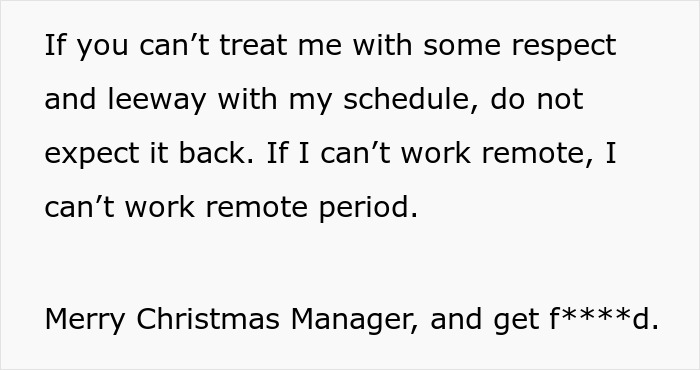
Image credits: Crispy–Lettuce
Remote work has skyrocketed in popularity in recent years
Remote work has been all the rage over the past few years. As the pandemic changed the landscape of our world in many ways, countless companies realized that their employees could be just as productive (or perhaps even more) if they had a bit of flexibility in their schedules. Forbes reports that as of 2023, 12.7% of full-time workers in the US work remotely, and 28.2% have a hybrid work model.
It’s expected that 32.6 million Americans will be working from home by 2025, and the desire to do so has skyrocketed, as 98% of workers say they’d like to be remote for at least some of the time. 93% of bosses also want to continue conducting job interviews via video calls, and 16% of companies are already operating fully remotely.
It seems that employees who are given the option to work remotely are more than happy to do so. A 2023 survey from the Pew Research Center found that 71% of remote workers believe their work model helps them balance their work and personal lives, and 56% say working from home helps their productivity and helps them meet deadlines.
But not every employer trusts their team to be productive at home

Image credits: Thirdman / pexels (not the actual photo)
Along with allowing workers to skip stressful commutes, stay home with their pets and have more time to prepare healthy meals, get enough rest and squeeze a workout in during their lunch breaks, being able to work remotely can simply make workers more satisfied with their jobs. 72% of employers report that remote work helps with employee retention, and 90% of workers believe that flexible work models improve employee morale.
But despite how popular remote work has become in recent years, not every company is on board. According to a report from ZipRecruiter, the biggest issue bosses have with allowing employees to work from home is that it makes them much harder to observe and monitor. “It’s an incredibly challenging, frustrating and disorienting time for employers when the tool they relied on most, observing employees in-person, is gone,” ZipRecruiter chief economist Julia Pollak told CNBC.
While many companies have reevaluated their remote work policies recently, as we’re no longer in the midst of a pandemic, some have decided that working from home is not as much of a necessity. 43% of companies who changed their policies decided to restrict remote work, rather than expand it, and this immediately backfired for some. 72% of companies who cut back on remote work say they lost valuable employees because of it, and 63% admit that great candidates dropped out during their hiring process because of the lack of flexibility.
Many employees hope that it will one day be illegal for their bosses to contact them on their days off

Image credits: Karolina Grabowska / pexels (not the actual photo)
In this particular case on Reddit, the issue is not so much the “no remote work” policy, but rather the manager’s lack of boundaries and respect for their employees. Brandon Smith, also known as The Workplace Therapist, told CNBC that texting employees at all hours is one of the top ways bosses cross the line with their staff. Smith says it might be necessary to have a direct conversation with your boss explaining why you can’t or won’t respond to their messages at inappropriate times.
Thankfully, there might be policies coming soon to the US to ensure that employers leave their workers alone on their days off. One 2022 survey found that 63% of employees believe it should be illegal for their bosses to contact them outside of working hours, yet one third of workers admitted they always answer when their bosses call, likely out of fear of repercussions.
But Forbes reported in 2022 that a bill was being discussed in New York City that would make it illegal for employers to force their teams to respond to work communications outside of their working hours. 45% of employees even believe that bosses should have to pay a fine for reaching out to their workers while they’re not on the clock, so perhaps soon, employees like this Redditor won’t need to worry about issues like this ever again.
We would love to hear your thoughts on this situation in the comments below, pandas. Then, if you’re interested in reading another Bored Panda article discussing the Anti-work subreddit, look no further than right here.
Readers shared their thoughts on the situation and suggestions of how the employee should respond next time





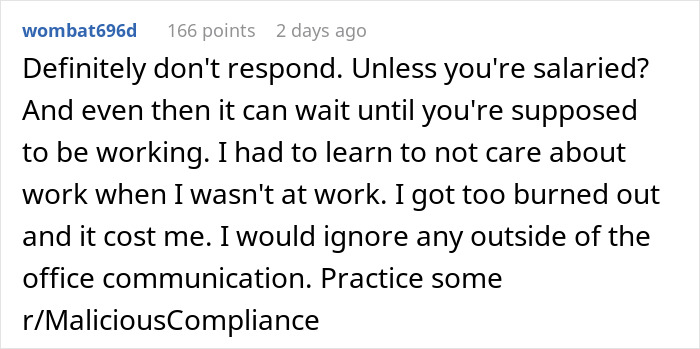



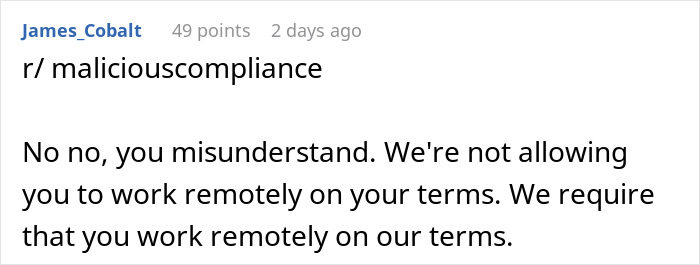

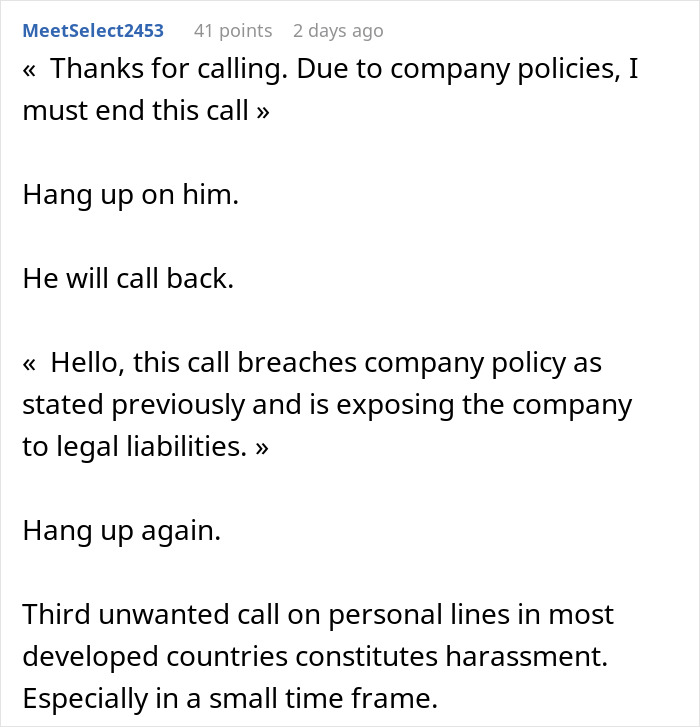

Some even had their own similar experiences to share
